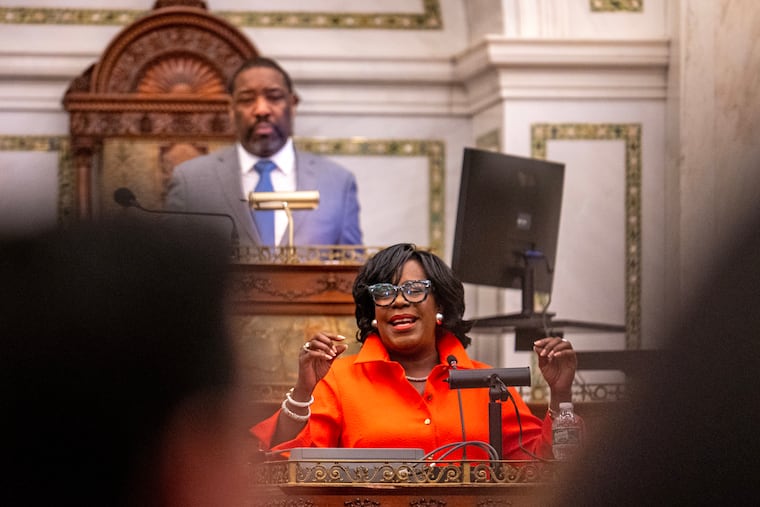Mayor Parker seeks City Council support for housing proposals aimed at addressing the city’s housing challenges.
In recent discussions surrounding Mayor Cherelle L. Parker’s ambitious housing initiative to construct and preserve 30,000 homes in Philadelphia, the role of City Council has emerged as a critical factor in determining the program’s success. This endeavor aims to address a pressing need for affordable housing within the city, yet it faces significant challenges posed by the prevailing tradition of councilmanic prerogative, wherein district council members hold substantial influence over land-use decisions in their areas.
While some argue that this tradition allows for community representation, critics highlight its detrimental impact on broader citywide policies, particularly in the realm of housing. Since the inception of the Philadelphia 2035 Comprehensive Plan under former Mayor Michael Nutter, subsequent City Councils have imposed restrictive zoning regulations that have hindered housing development. The 2021 decision to limit property tax abatements for new construction has further exacerbated this issue, resulting in a stagnation of housing production at a time when demand is on the rise.
In response, the Parker administration has introduced five legislative proposals aimed at streamlining the home-building process. However, the reluctance of City Council to endorse these initiatives, a situation that many observers find unsurprising, raises concerns about the real potential of Parker’s housing strategy. During her tenure as a council member, Parker actively promoted restrictive zoning policies, often prioritizing the preferences of constituents who voiced opposition to new developments. This historical context complicates her current positioning as mayor, as she now seeks to implement broad systemic changes instead of catering solely to individual complaints.
The challenge of navigating community feedback while ensuring timely project approvals is multifaceted. Prolonged delays, as evidenced by an affordable housing project in Strawberry Mansion that has stalled for six years, threaten the viability of potential developments. Rising costs associated with such delays could ultimately thwart efforts to provide the housing that the city desperately needs.
Current regulations often allow opposition to housing developments to be amplified by a small yet vocal group, skewing the perception of community sentiment. Moreover, the organizations that dominate community input processes do not always reflect the broader public interest, with some appearing to represent only a solitary viewpoint.
To bridge the divide between community needs and the imperative for expansive housing development, Mayor Parker can consider linking her proposal to secure 0 million in housing funds to reforms aimed at reducing zoning restrictions and expediting approvals. Such a connection is crucial; without progressive land-use legislation, financial investments may yield minimal returns.
Program initiatives like Turn the Key, which aims to facilitate workforce housing, exemplify how the council’s hesitance can lead to inflated costs. The administration’s recent request for 2 million to fund this program underscores the need for clarity and cooperation between the Council and the Mayor’s office.
For Mayor Parker’s ambitious housing vision to advance, it is essential that she align efforts to streamline development processes with her proposed fiscal investments. This coordinated approach could enhance the possibilities for growth and sustainability within Philadelphia’s housing landscape.
As the dialogue around housing in Philadelphia continues to evolve, the collaboration between the Mayor’s office and City Council will be pivotal in shaping the future of the city’s residential infrastructure and, ultimately, its residents’ quality of life.






